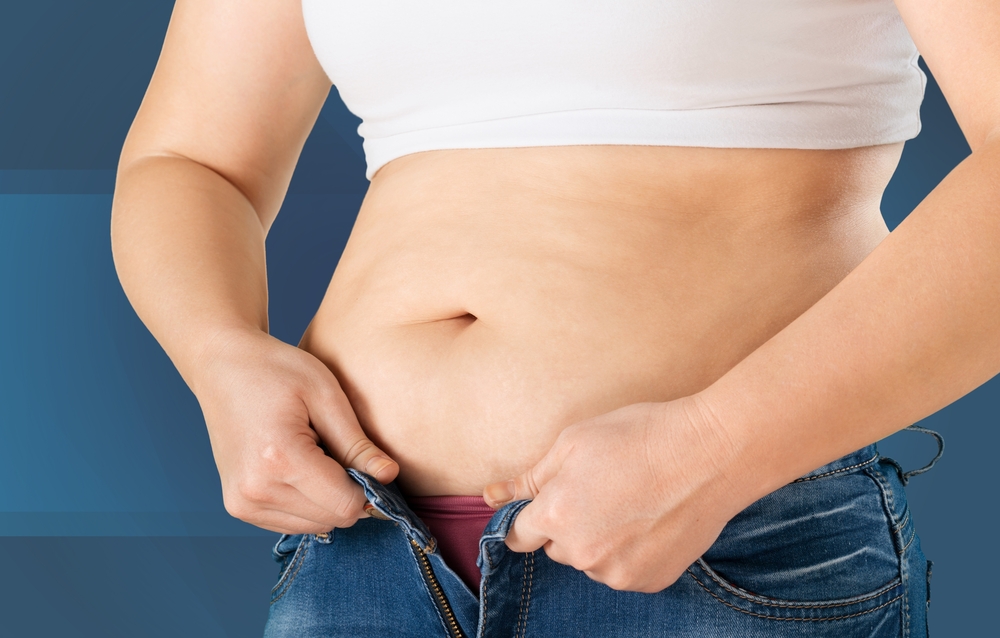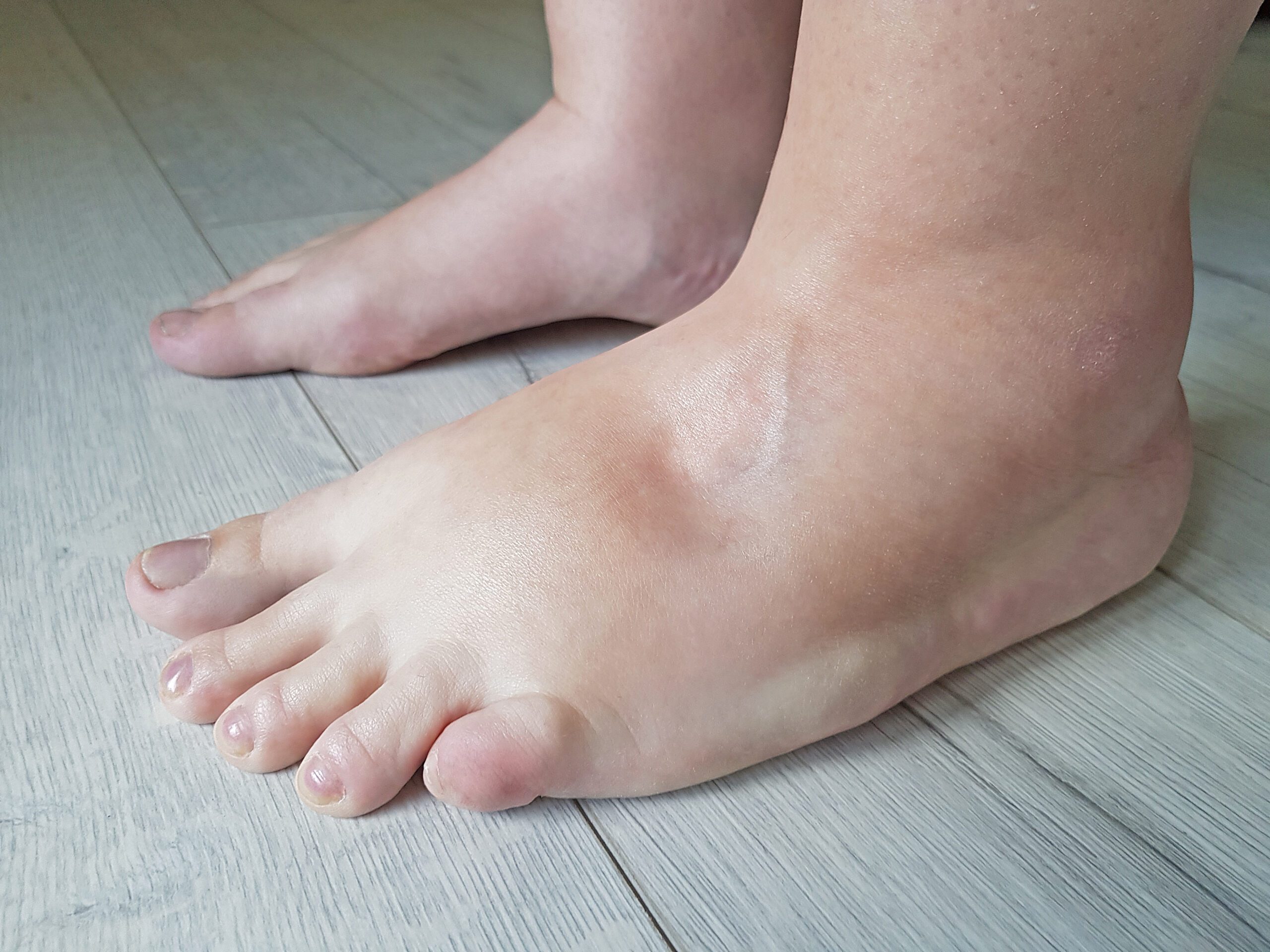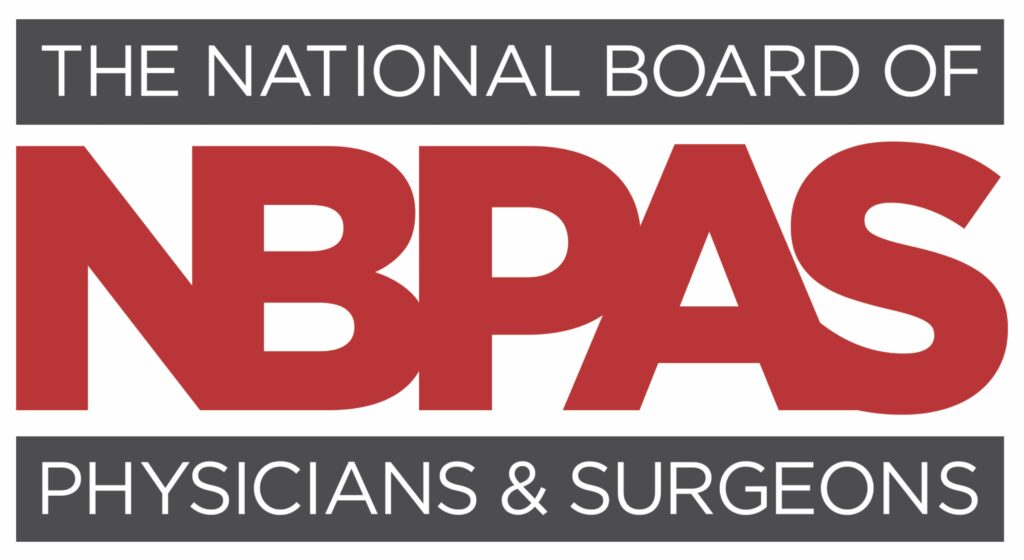
Water retention is a common concern for many and, depending on its severity, can cause a lot of discomfort. In some cases, water retention can even be a sign of an underlying medical condition. All the same, it’s important to understand what exactly water retention is, what causes it, and how to get rid of it.
Defining Water Retention
Water retention happens when an excess of fluids builds up in certain parts of your body. This occurs due to fluid accumulating over time in body tissue, creating swelling and puffiness.
Fluid retention can occur anywhere in the body. Typically, it is most commonly seen in the legs, ankles, feet, face, and hands.
What Causes Water Retention?
There are a number of things that can cause your body to retain water, including sitting or standing for a long time, hormone changes, dehydration, and more.
Sodium Intake
The typical American diet is high in sodium, specifically because of processed foods. Sodium naturally attracts and holds onto water, causing your body to retain excess fluid if too much salt is consumed. Additionally, alcohol and artificial sweeteners can lead to bloating.
When it comes to sodium, it’s important to consider the quality of food you are intaking on a daily basis. Cheese, cold meats, frozen meals, cans of soup, and savory snacks are notorious for their high percentage of sodium. Instead, eating a diet primarily composed of whole foods and lean meat can keep sodium levels in check and decrease water retention.
At Mirabile M.D., we advise patients following a low carbohydrate meal plan to replenish sodium with electrolytes, rather than turning to processed foods that can cause water retention.
Dehydration
As contradicting as it is, not drinking enough water can actually lead to water retention. Our body has many protective and survival mechanisms, and this is a common one, considering our body craves water to survive. Adequate hydration will help maintain a healthy balance between fluids and electrolytes in the body.
Our providers at Mirabile M.D. can perform a body composition analysis to determine if you’re not consuming enough water on a daily basis. Additionally, we can use this analysis to monitor patients’ weight, especially for those who may gain some weight only to find it’s water weight from improper hydration.
We typically advise patients to drink in ounces half of your body weight in pounds. For example, a 150 pound individual should consume at least 75 ounces of water per day. If you are exercising or are an incredibly active individual, you should consume even more water.
Hormonal Changes
Fluctuations in hormones can also contribute to water retention, especially during a menstrual cycle or pregnancy. The changes in estrogen levels can affect fluid balance. This is also why it’s common for women to experience more bloating when they’re on their cycle or after a change in birth control.
Inactivity
Sitting or standing in one place with no movement for too long is another significant cause for your body to retain water. Underuse of the muscles can affect blood flow and cause them to lose strength. This, in turn, can cause water retention.
If you’re a person with mobility problems or one who lives a sedentary lifestyle, it might help to keep your feet raised, wear long compression socks or stockings, and practice smaller exercises like raising and lowering the feet and rotating ankles to get the blood flowing.
Medical Conditions
Multiple underlying medical conditions can disrupt the body’s fluid balance and lead to edema. Conditions including kidney disease, heart failure, liver disease, and venous insufficiency can eventually cause the body to hold onto excess fluid.
Certain Medications
Some medications, as well as vitamins and supplements, can cause your body to retain water as a side effect. The most common medications include certain chemotherapy treatments, over-the-counter pain relievers like Advil or Aleve, some blood pressure medications, certain antidepressants, and medication for Parkinson’s disease.
Though everybody reacts to medication differently, these are the most common ones correlated with water retention. It’s important to check the label of any medication or supplement you take to know what the potential side effects are.

Common Symptoms of Water Retention
Water retention may cause you to feel heavier than normal with a lack of energy. Depending on how severe a case of edema is, it can even cause pain where the swelling is occurring. If this occurrence goes on for too long, it can start to cause damage to the skin as well.
Some more noticeable symptoms of fluid retention include:
- Stiff and achy joints
- Weight gain and fluctuations
- Swelling under the skin
- Puffiness in the face
- Bloating, specifically in the abdominal and hip area
4 Ways to Get Rid of Water Retention
There are several ways to combat water retention, from lifestyle or diet changes to at-home remedies. However, if you’re experiencing signs of water retention due to an underlying medical condition, it’s essential to consult with a professional for a proper diagnosis and guidance. Otherwise, here are some helpful ways to get rid of water retention:
1. Increase Magnesium Intake
Magnesium is a key mineral that can help reduce water retention. Found in foods like nuts, whole grains, and leafy green vegetables, this mineral relaxes blood vessels and improves circulation, reducing fluid buildup in tissues.
Additionally, it’s also available as a supplement that you can take every day to ensure you are getting your dose of magnesium.
2. Consume Enough Water & Electrolytes
Keeping your body hydrated is one of the best ways to prevent water retention. When your body is well-hydrated, it is less likely to hold onto excess fluids.
Additionally, if you are following a high protein and low carb diet, it is important to consume electrolytes to replenish sodium levels in your body.
3. Eat More Potassium
Potassium plays an important role in our diets. When it comes to heart health, muscle contractions, and nerve function, potassium is the answer. This mineral also helps maintain blood volume, fluid balance, and sodium levels, which, in turn, helps decrease water retention.
Some common foods that are especially rich in potassium are leafy greens, bananas, avocados, and potatoes.
4. Limit Refined Carb Intake
Refined carbs, such as white bread or flour, are grains that have been processed by removing parts of the kernel, making it no longer a whole grain. Consuming these foods too often can lead to spikes in blood pressure and insulin levels. High insulin levels can cause more sodium retention in the body. As a result, this can lead to increased water retention.
If you’re struggling to combat water retention, our team at Mirabile M.D. provides patients with personalized wellness programs and versatile nutrition plans for each body type. We will work alongside you to ensure you have all the resources and guidance you need. Contact Mirabile M.D. to start your wellness journey today.

